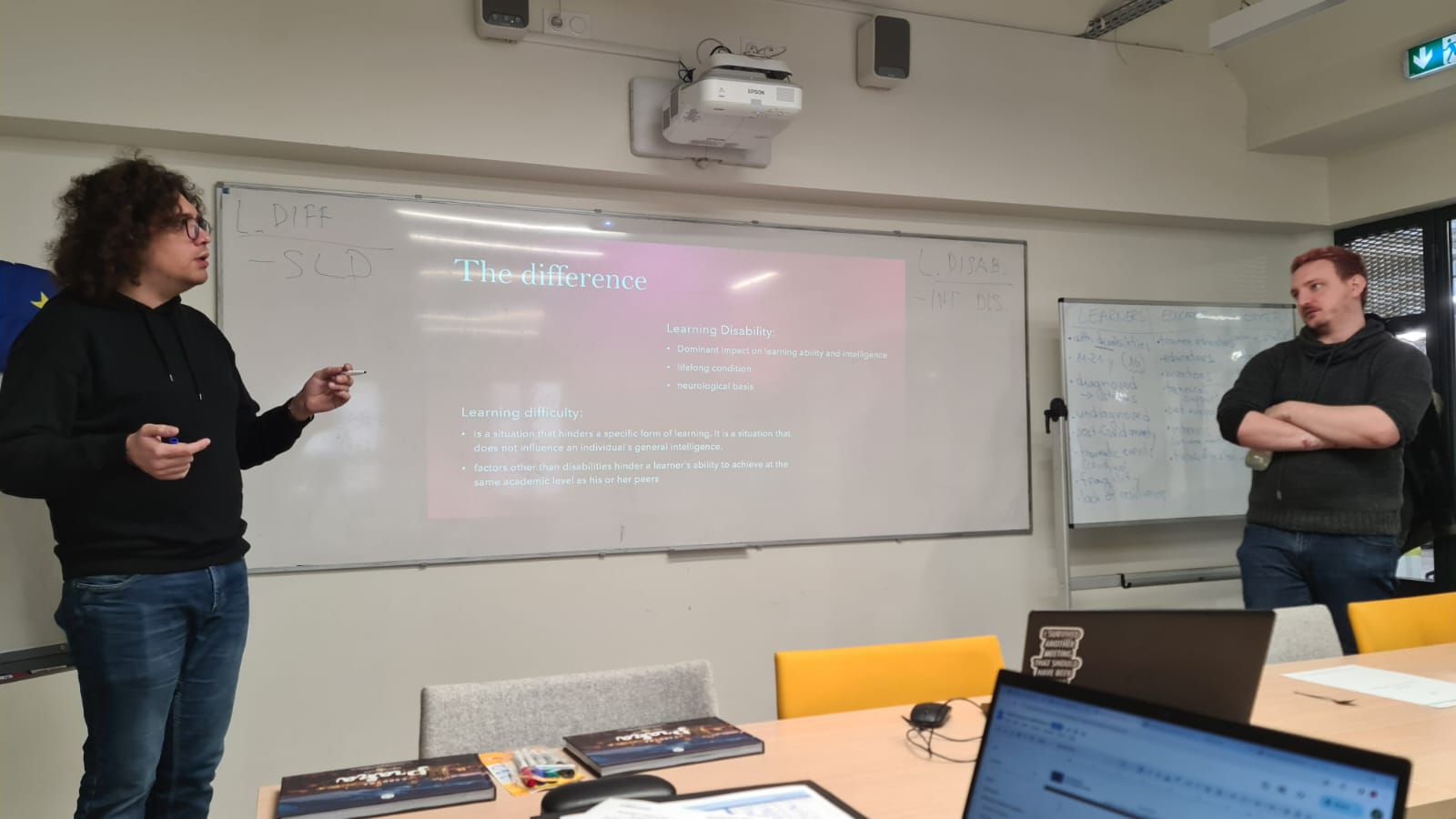Supporting Learners with Disabilities and Learning Difficulties: Training Modules for Teachers and Support Staff
How can we make sure that learners with learning difficulties and disabilities receive the support they need not only to succeed in school, but also to prepare for life and work? This is one of the central challenges in education today.
The Erasmus+ project Good Job! has developed a series of free training modules for teachers and support staff who want to strengthen their skills in working with learners with learning difficulties and disabilities. These modules combine theory, practical tools, and real-life examples to make inclusive education and employability support more effective and sustainable.

Below you will find a short overview of each module. Each one offers valuable insights and can be explored in full here.
Module 1 – Coaching and Mentoring: Principles, Similarities and Differences
This first module introduces the fundamentals of coaching and mentoring as support mechanisms in education. While the terms are sometimes used interchangeably, the differences are important: coaching is usually goal-oriented and structured, while mentoring often relies on sharing personal experience and guidance.
👉 Module insight: Research shows that when both approaches are combined, learners with learning difficulties and disabilities not only improve their academic outcomes but also gain greater confidence in navigating challenges.
Module 2 – Disabilities and Learning Difficulties: Clarifying the Terms
Educators often encounter a wide variety of learning difficulties and disabilities, and the terminology can be confusing. This module helps teachers and staff systematise definitions so that they can better assess which type of support – coaching, mentoring, or other interventions – may be most effective in each individual case.
👉 Module insight: Some learners may experience “invisible” difficulties, such as dyslexia or ADHD, which often remain unrecognised. Clarifying the terminology helps prevent misunderstandings and ensures more tailored support.
Module 3 – Creating Inclusive Learning Environments for Employability
How can a learning environment be shaped to prepare students with learning difficulties and disabilities for the labour market? This module offers practical advice and examples, from adjusting physical spaces to fostering inclusive group dynamics.
👉 Module insight: Introducing peer-support activities not only strengthens social skills but also mirrors the teamwork skills that employers value in the workplace.
Module 4 – Employability Coaching for Learners with Learning Difficulties and Disabilities
Beyond academic knowledge, employability depends on a set of transversal competences: communication, problem-solving, adaptability. This module shows how coaching techniques can help learners with learning difficulties and disabilities develop these competences step by step.
👉 Module insight: A coaching session might focus on how to prepare for a job interview – breaking the process into manageable stages, practising role-plays, and building self-confidence.
Module 5 – Mentoring at the Workplace
The transition from school to work can be one of the most challenging phases for learners with learning difficulties and disabilities. This module explores how workplace mentoring can provide a bridge, supporting both the learner and the employer.
👉 Module insight: Companies that implement structured mentoring for employees with learning difficulties and disabilities report lower turnover rates and a stronger sense of inclusion across their teams.
Why Explore These Modules?
These training modules are more than just theoretical resources: they are practical tools designed to be applied directly in classrooms and workplaces. Teachers and support staff who complete them will gain:
- A deeper understanding of coaching and mentoring methods.
- Clear strategies for creating inclusive learning environments.
- Concrete tools to support learners with learning difficulties and disabilities in developing employability skills.
- Guidance on building strong bridges between education and the world of work.
👉 Discover the full modules here: https://goodjob-project.eu/en/training-modules
